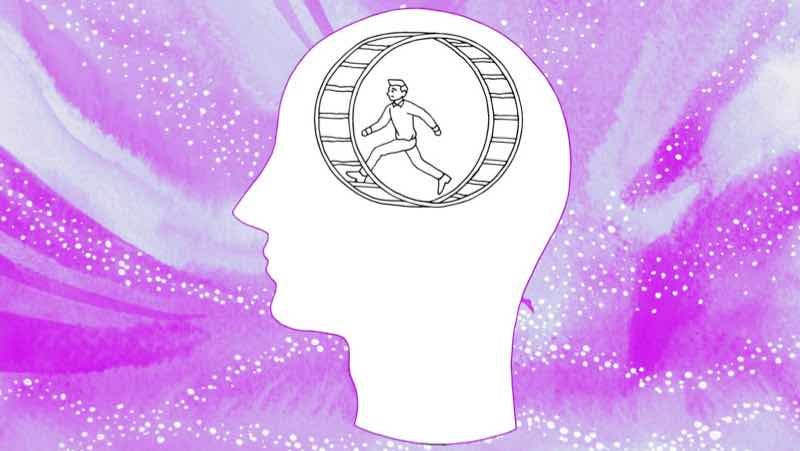The hedonic treadmill
If there's one psychological phenomenon that everyone should know it's: the hedonic treadmill (also called hedonic adaptation). In my opinion, it should be taught in school. Put simply, it's our adaptive nature to return to a baseline of happiness regardless of events that affect our mood positively or negatively.
This means, an elated feeling from owning a new car or from a lottery win is temporary, likewise, feelings of depression from losing a limb or other terrible event will also eventually disappear. The founders of the hedonic treadmill theory researched this in a study called "Lottery Winners and Accident Victims: Is Happiness Relative?"
The hedonic treadmill from an evolutionary perspective makes a lot of sense as it encourages survival and reproduction. The dopamine induced excitement from the new and unknown drove us to hunt, explore and maximise resources for survival.
The reason the hedonic treadmill is important today is because: it should make you question what you want in life.
You'll get used to it
Whatever that thing is in the future that you can't wait to happen because it will change everything and make you eternally happy. Unfortunately, it won't. Instead it will be temporary. Whether that be, getting married, retiring, getting rich, moving to a new home -- it really doesn't matter as it becomes part of the new normal.
The same can't be said for something or someone that is making you depressed, leaving an abusive partner or being released from prison will have a permanent positive effect. This is because your baseline happiness was being suppressed.
But unless you have something significantly weighing you down, trying to get happier (permanently), usually won't work.
Retirement is boring
The one thing many of us look forward to is retirement, because that's when we can really enjoy life. If the truth be known, for many people it's a boring life that lacks purpose. After an initial happiness bump from not travelling to work and avoiding the daily grind, the hedonic treadmill kicks in and a new life of leisure is not all it was cracked up to be.
Three of the most common words used to describe retirement in a UK study of a 1,000 retirees were: boring, lonely and quiet. It's fair to assume that the vast majority or people fall into the hedonic treadmill trap by believing retirement will have all the answers without having any plan.
The molecule of more
"The dopamine circuits in the brain can be stimulated only by the possibility of whatever is shiny and new, never mind how perfect things are at the moment. The dopamine motto is 'More'"
Daniel Lieberman, Michael Long (The Molecule of More)
In The Molecule of More the authors describe how dopamine is the driving force behind more stuff, more stimulation, and more surprises. Dopamine is about anticipation of the unknown, and once something becomes the known, dopamine is no longer activated.
From dopamine’s point of view, having things is uninteresting. It’s only getting things that matters. If you live under a bridge, dopamine makes you want a tent. If you live in a tent, dopamine makes you want a house. If you live in the most expensive mansion in the world, dopamine makes you want a castle on the moon. [The Molecule of More]
Having enough novelty
If lockdowns have taught us anything, it's that even working from home becomes boring. Who'd have thought that many would be desperate to get back into the office? Too much of a good thing, given enough time will drain us. It's powerful to know though.
Therefore, whatever that thing is, off on the horizon you're excited about now, will no longer excite you once it comes along (because dopamine's job is done). Using this knowledge, it tells us that by living a life with enough novelty (with things to look forward to), will be a sure-fire way to activate our dopamine receptors, meaning we can hack the hedonic treadmill to our advantage.
"Dopamine isn’t the pleasure molecule, after all. It’s the anticipation molecule."
Daniel Lieberman, Michael Long

